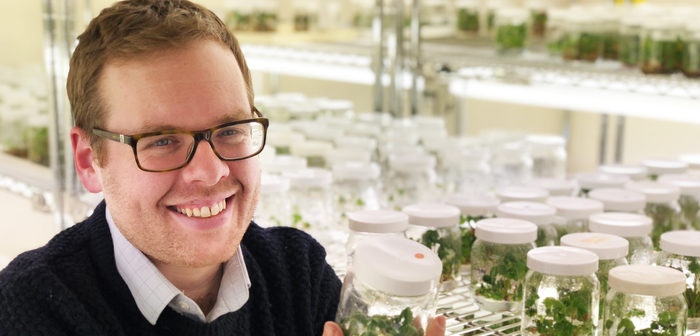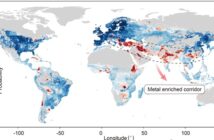Dr Harrison currently leads the crop genetics, genomics and breeding research programme at NIAB EMR in Kent. He takes up his new role with immediate effect, guiding the overall scientific direction, development and management of NIAB’s crop genetics and breeding, pathology, and crop variety characterisation at Cambridge. This includes taking a leading role in the development of the Cambridge Centre for Crop Science (3CS), a collaborative initiative between NIAB and the University of Cambridge.
Announcing Dr Harrison’s appointment NIAB chief executive Dr Tina Barsby said: “We are delighted to be able to promote a scientist of Richard’s strength and experience from within our organisation. He is a superb asset to NIAB and will be central to the development and communication of our science direction and strategy.
“NIAB has a leading role in supporting sustainable and efficient production of agricultural and horticultural crops in the UK and internationally.We can only do this through world-class research, innovative applied science and effective translation into practice via knowledge, products and services delivered to growers, industries and public bodies. Richard, as our new Director of Cambridge Crop Research, will be instrumental in this continued success, and growth, of NIAB.”
Dr Harrison completed his PhD in systems biology at the University of Manchester, followed by a Medical Research Council Fellowship at the University of Edinburgh in bioinformatics and population genetics. He joined East Malling (now NIAB EMR) in 2011 as a research leader, taking his current role as the head of the genetics, genomics and breeding department in 2016, spanning applied to fundamental crop research in the horticultural sector. Dr Harrison coordinated seven research group themes at NIAB EMR, including applied crop breeding, imaging and precision agriculture, new technology, statistical genomics, fruit quality and plant development. His own research focuses on understanding the genetic basis of complex traits, such as the interactions between plants and microbes.
Dr Harrison is a member of the BBSRC Agri-food Strategic Advisory Panel, the KTN Plant Science advisory board, and the BBSRC pool of experts.
Dr Harrison said: “This is a great opportunity, and a privilege, to join the senior team at NIAB and to help to grow and strengthen the research base. Current global challenges call for new ways working in order to develop an environmentally and economically sustainable food system. I am looking forward to contributing to an exciting future for NIAB, and for 3CS, in this vital area of research and development.”




